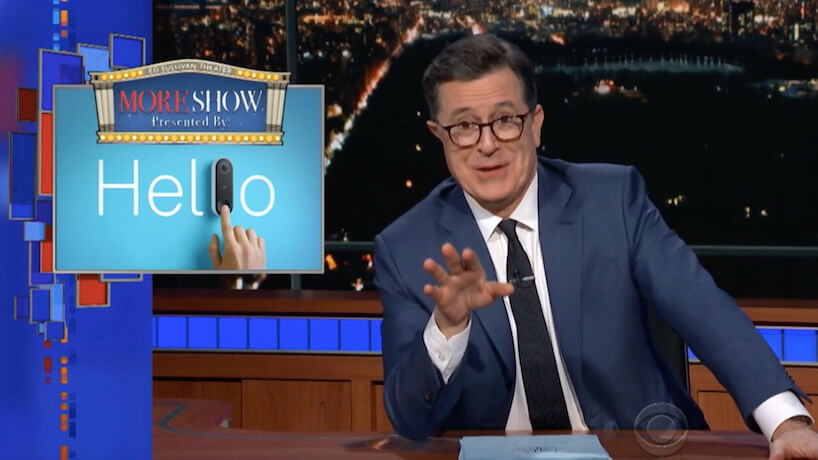Previews for The Late Show with Stephen Colbert last week hinted at a pleasant surprise in store: an extra two-and-a-half minutes of the host’s antics. It wasn’t a need to fill time on CBS, though. The additional portion of the show came from a new sponsorship initiative with an aim to please viewers with fewer commercials. The segment, “More Show Presented by: Google’s Nest Hello Video Doorbell,” replaced one of the show’s traditional advertising breaks.
Before the episode aired, I checked in with Dave Lutz, managing partner at Velvet Chainsaw Consulting, to see how The Late Show’s strategy might apply to event organizers and their attendees. Lutz underscored that the plan wasn’t geared toward “viewers.” It aimed to connect with a less-corporate-sounding audience: fans. “The most engaging and worthwhile sponsorships are the ones that put the fans first,” Lutz told me. “And we all know that fans don’t want to watch commercials.”
“If they put the fans first, it should create a triple win,” Lutz added. “A win for Colbert, a win for Google, and most importantly, a win for the fans who get to see more of the show they love.”
To earn that kind of victory, Lutz stressed that the sponsorship needed to feel authentic. If it felt like an advertisement dressed in different clothing, it would fail. When I tuned in on Wednesday evening, the segment was true to Colbert’s comedic sensibilities and earned plenty of laughs from the audience at the Ed Sullivan Theater. “Who makes Nest? Google? So, Google’s paying for this right now?” Colbert asked at the start of the segment with an air of sarcasm. “That’s a lot of money.”
Instead of feeling like a product placement, Colbert had plenty of fun with the idea of a video doorbell and its ability to help homeowners fend off door-to-door scammers threatening utility shut-offs, offering unlicensed contracting services, and selling meat. (This is actually true and may be one of the grossest-sounding scams possible.) Check out the entire clip here.
The Late Show’s Lessons for Your Early-Morning Speaker
Colbert’s move resonated with a small-screen audience, and Lutz made a connection to meetings and conferences. “Let’s say you have a keynote speaker at a conference and the organization who sponsored the session might get to introduce them before they come on stage,” Lutz said. “That set-up often falls flat unless the sponsor has someone with a great personality.”
Instead of handing over the first portion of the program to a sponsor, Lutz pointed out that event organizers have the power to give their fans more of what they want: insights from an inspirational keynote speaker. “At the end of the session,” he said, “the speaker can ask the sponsor to join them on stage and ask a simple question: Why did they think this session aligned with their company’s values?”
The event secures sponsorship dollars. The fans receive more of the programming they registered for in the first place. The sponsor gets to be part of the final impression of the presentation. It’s a triple-win scenario.
Interested in more tips for creating successful sponsorship opportunities? Lutz recommends “Last Generation Sponsorship,” a white paper from Kim Skildum-Reid’s Power Sponsorship (downloadable here). And if your event still operates with the tiered approach — platinum, gold, and silver — to sponsorship, be sure to check out Lutz’ article in Convene on why it’s time to reframe these old-school levels.

